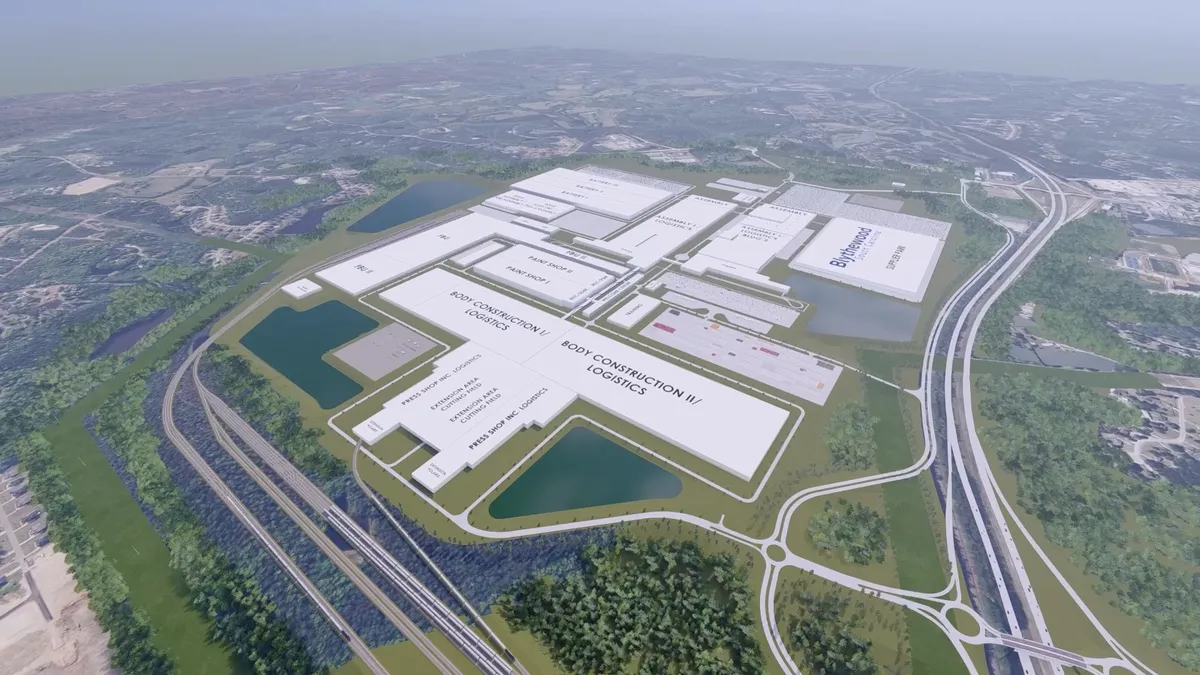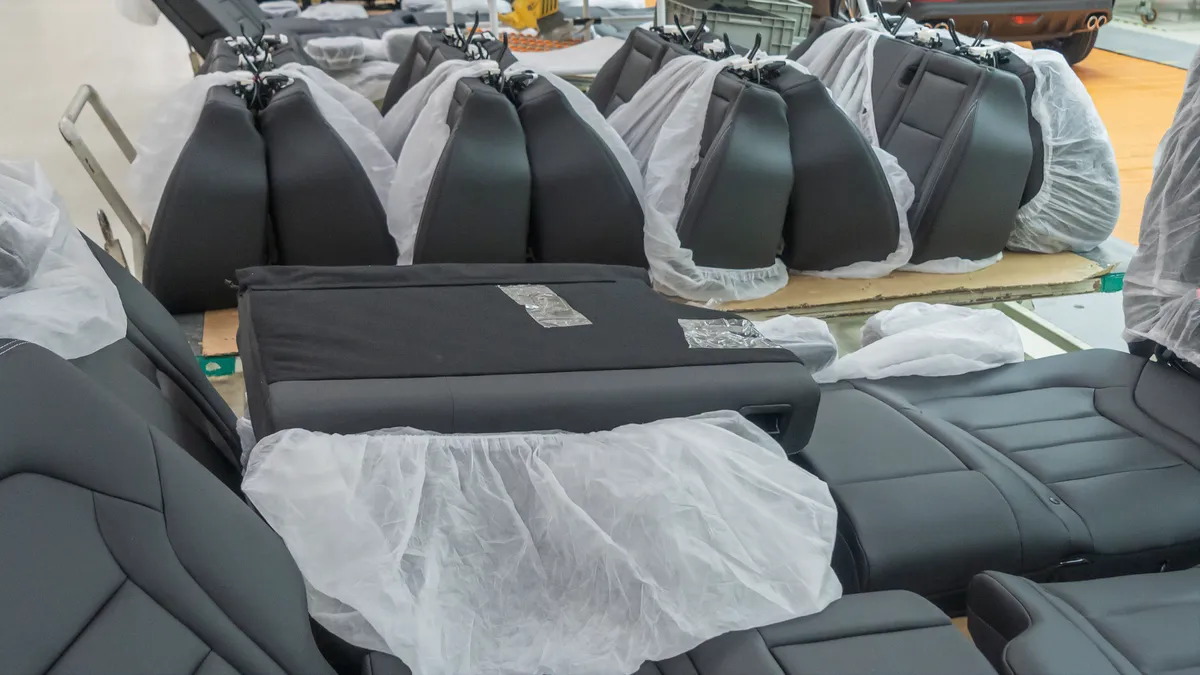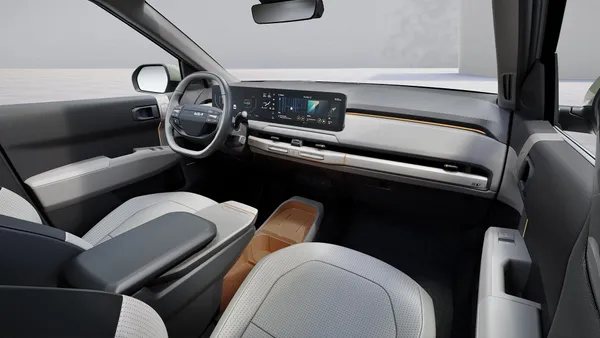Even as a boom in manufacturing construction continues across the country, several multibillion-dollar projects have hit unforeseen roadblocks in recent weeks.
Scout Motors, an American automotive company and subsidiary of Volkswagen Group, recently paused pre-construction site clearing activity that had begun early at its $2 billion electric vehicle plant in Blythewood, South Carolina, according to the company. Concerns from environmental groups and state and federal agencies around wetland development caused project teams to hold off further construction work while permitting moves forward, according to a statement shared with Construction Dive.
Meanwhile, battery manufacturer American Battery Factory postponed construction of its $1.2 billion lithium phosphate battery factory in Tucson, Arizona, until November, according to a Pima County board of supervisors meeting on Sept. 5. Project teams originally pegged construction to begin in September, but decided to delay work by a couple of months due to additional geotechnical assessment and surveying.
Geotechnical assessments are often needed to identify the type of earth that exists below the ground. Once complete, that data will support design work of the gigafactory.
These developments follow the July announcement from TSMC, a Taiwan-based semiconductor company, to push back the opening of its Arizona chip factory until 2025 due to labor issues, said Mark Liu, TSMC chairman. Labor shortages, combined with COVID-19 surges and licensing problems, had already caused a three to six-month delay on the $40 billion project.
These construction pauses come at a time of historic reshoring of American manufacturing, spurred by the $52.7 billion CHIPS Act and $485 billion Inflation Reduction Act, both signed into law by President Joe Biden in August 2022.
While the causes for delays on these projects are varied, experts say they mainly boil down to two broad categories: the challenge in finding workers, and the glacial permitting process required to build these structures safely.
Specialty labor shortages
Multibillion-dollar manufacturing projects require special construction techniques, including sophisticated electrical work or the need for “hyper clean spaces” that differ from typical construction projects, said Brian Turmail, vice president of public affairs and strategic initiatives at Associated General Contractors of America.
But that degree of speciality is slowing completion schedules down as projects search for qualified labor.
About two-thirds of contractors reported many construction worker candidates lacked the skills needed to be employable, said Stephen Sandherr, AGC CEO.
“Unless federal officials begin to narrow the funding gap between college prep and career training the construction industry will continue to struggle to find workers,” said Sandherr. “It is great that federal officials want to invest in construction projects, they also need to invest in construction workforce development.”
Additionally, more than 70% of manufacturers are struggling to attract and retain a quality workforce, according to a new report from the National Association of Manufacturers.
The report, based on a survey of manufacturers, also called for permitting reform to help streamline the construction process.
Nearly three-quarters of survey respondents said that permitting reform — which would simplify and speed up the approval process for new projects — would be helpful to their manufacturing company, allowing them to hire more workers, expand their business or increase wages and benefits.













